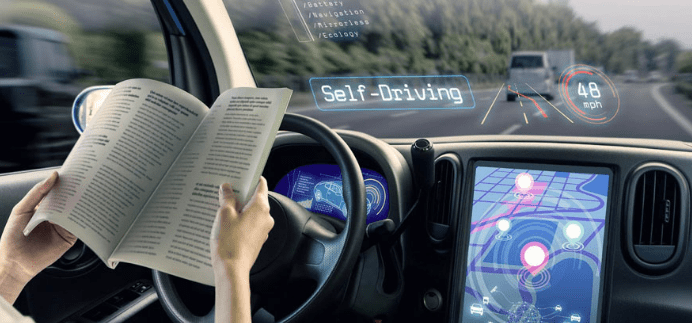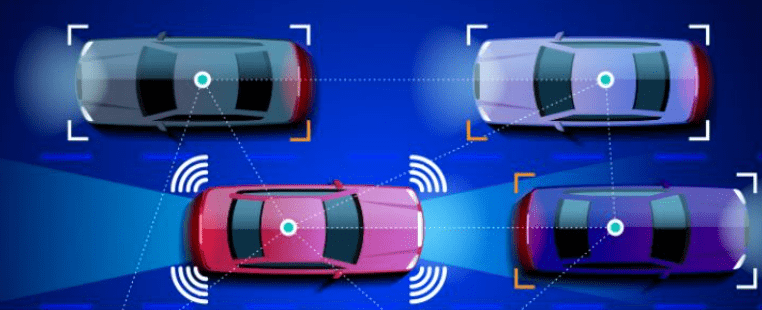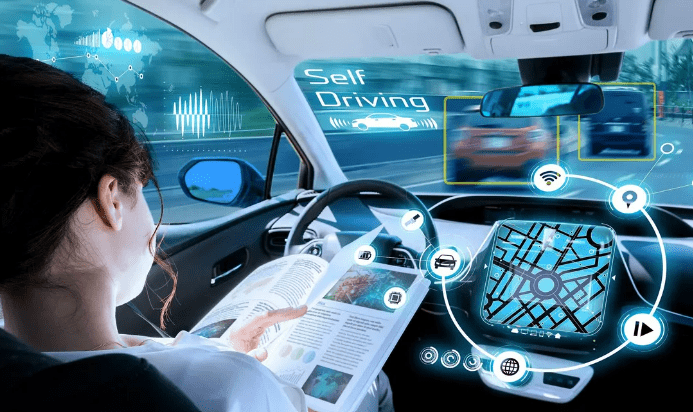Pros of Self Driving cars: With over 40 companies actively investing in autonomous vehicle technology, it’s safe to say that not only traditional car manufacturers but also tech heavyweights, such as Google’s parent company Alphabet, are fervently pursuing the dream of self-driving cars.
Consequently, we can expect the debut of fully autonomous and commercially viable driverless cars in the near future. Should this come to pass, autonomous vehicles possess the capability to enhance our society and simplify everyday life. Let me outline five ways in which I believe autonomous cars will bring about these benefits.
5 Pros of Self Driving Cars
The benefits of Self Driving Cars are evident: improved road safety, reduced driver burden, decreased fuel consumption, and minimized traffic congestion, to name a few. Nevertheless, there are still obstacles to overcome, primarily technical challenges. Here we will let you know about all these self driving cars pros:

1. Making our roads safer
Although there have been high-profile cases of autonomous vehicles being involved in tragic fatal accidents, data indicates that self-driving cars will ultimately enhance road safety. According to statistics from the National Highway Traffic Safety Administration (NHTSA is the leading cause of road traffic accidents, resulting from miscalculations, errors of judgment, speeding, drunk driving, and phone use. Shockingly, human error contributes to a staggering 94 percent of serious crashes.
By eliminating human error from the equation, fully autonomous vehicles have the potential to make our roads safer for not only drivers but also passengers, cyclists, and pedestrians. Recognizing these safety benefits, the NHTSA champions the adoption of autonomous vehicles.

2. Easing parking struggles
Autonomous vehicles are expected to have a positive impact on parking in crowded cities. By allowing driverless vehicles to drop off passengers and continue on, parking congestion can be mitigated. This possibility becomes even more feasible if future drivers opt for automated ride-sharing or taxi services instead of owning self-driving cars. Additionally, this advancement presents an opportunity to repurpose parking lots for much-needed housing or aesthetic public spaces, as fewer people would require parking spaces.
Recognizing the potential, the city of Chandler in Arizona has already adjusted its zoning laws to accommodate autonomous vehicles. Developers can now construct properties with fewer parking spaces, as long as suitable curb-side passenger loading zones are provided. Consequently, the future may see a shift away from unsightly, sprawling parking lots, with buildings favoring dedicated drop-off and pick-up areas.
3. Making the daily commute more bearable
Once we reach a stage where human intervention is no longer necessary behind the wheel, autonomous vehicles will revolutionize our daily commutes. Just imagine – instead of being confined behind the steering wheel, you’ll have the luxury to recline comfortably at the back, accomplish some pending work, or simply unwind while catching up on your latest Netflix obsession. Given that Americans spend 19 full working days per year stuck in traffic during their commute, the amount of time commuters will be able to reclaim for themselves is truly remarkable.
4. Reducing Emissions
In the future, as self-driving vehicles become predominantly electric or hybrid, and considering the fact that autonomous cars drive with greater efficiency than humans, we have the opportunity to witness a significant reduction in emissions. At least, that’s what we hope for. A study conducted by the University of California, Davis suggests that by 2050, automated vehicles could potentially decrease greenhouse gas emissions by as much as 80 percent.
However, this can only be achieved if the vehicles are both electric and shared. On the flip side, if we fail to transition towards shared vehicles, the alarming prediction is that emissions could actually increase (potentially by as much as 50 percent by 2050, according to the same study). This is due to the possibility of self-driving cars making car ownership accessible to individuals who are unable to drive, thereby potentially increasing the overall number of vehicles and miles driven. Therefore, it is clear that realizing this benefit is not a certainty. As a society, we must reconsider our perspective on car ownership if we truly wish to fully enjoy the environmental advantages offered by autonomous vehicles.
5. Cutting domestic air travel
Volvo’s groundbreaking 360c concept car unveiled in 2018, offers a tantalizing glimpse into a future where self-driving cars transcend their traditional purpose. Imagine cars as multifunctional pods: spaces where work, sleep, and relaxation harmoniously coexist. Picture a fusion of a premium hotel suite and a lofty first-class airplane cabin. Volvo envisions a luxurious world of driverless convenience, where a car awaits your command, rendering short-haul domestic flights obsolete.
With Volvo’s ingenious concept, you can have it all. Simply order the car, preselect your desired refreshments, and sink into the plush back seat while the vehicle whisks you away to your destination. Arriving with a serene countenance, free from the travails and weariness of air travel, is now within reach. Particularly for overnight journeys, this inspired vision has the potential to upend the travel industry and significantly mitigate its carbon footprint.
FAQs
What are the pros and cons of self-driving cars?
PROS
1. Greater Road Safety.
2. Reduced Congestion.
3. Environmental Gains.
4. Better Land Use.
5. Contactless Delivery.
6. International Competitiveness.
Cons
1. Security issues. One of the potential cons of self-driving cars is the possibility of hacking.
2. Job losses. Those who depend on driving to make a living may find their career obsolete with the introduction of self driving cars.
3. Initial costs.
4. Moral Machine dilemma.
5. Machine error


2 thoughts on “Pros of Self Driving cars: 5 Ways they Could Make Our Lives Better”